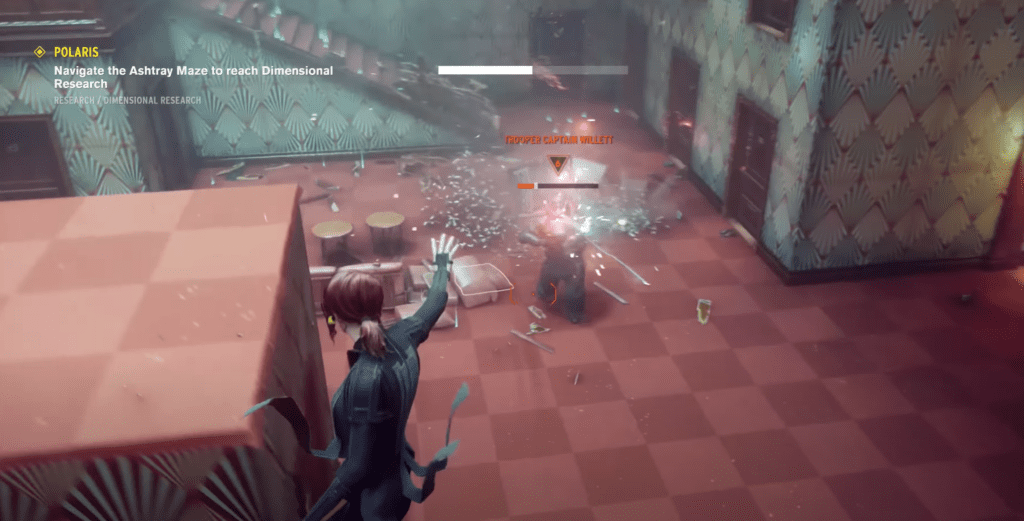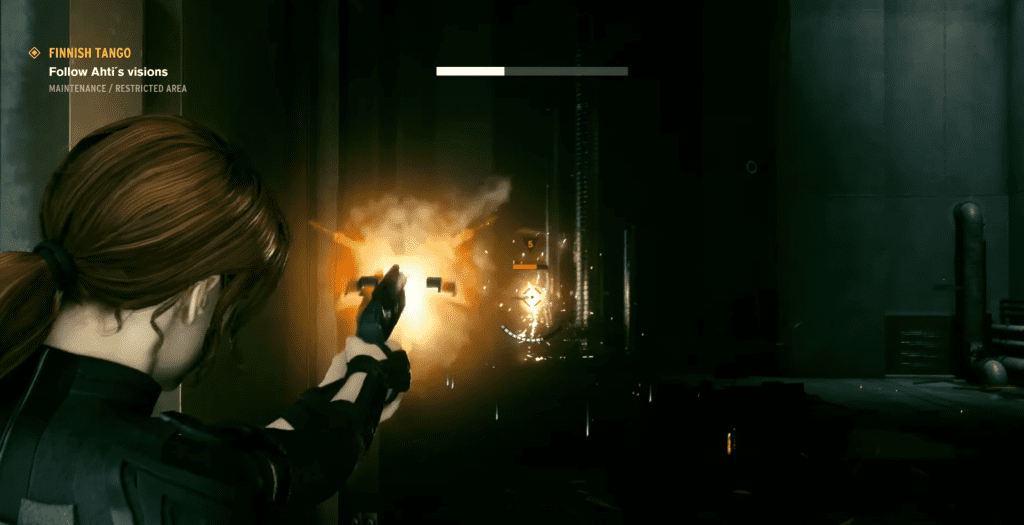Control is one of the most unique and mind-bending action games I’ve ever played. Developed by Remedy Entertainment, the studio behind Alan Wake and Max Payne, it takes the third-person shooter genre and injects it with a heavy dose of psychological horror, sci-fi mystery, and supernatural chaos. From the moment I stepped into the game’s eerie world, I knew I was in for something completely different.
The story follows Jesse Faden, a woman searching for her missing brother, which leads her to the mysterious Federal Bureau of Control (FBC)—a secret government agency investigating paranormal phenomena. Almost immediately, things spiral out of control. The FBC headquarters, known as The Oldest House, is a massive, shape-shifting structure filled with unsettling environments, reality-warping anomalies, and an overwhelming sense that something is deeply wrong. As Jesse explores, she discovers she has been chosen as the new Director of the Bureau, granting her strange abilities and putting her in the middle of a battle against a terrifying force known as The Hiss, an otherworldly entity that corrupts and manipulates reality.

One of the game’s biggest strengths is its atmosphere and world-building. The Oldest House feels alive, constantly shifting its corridors, rearranging its rooms, and hiding layers of secrets that slowly unravel as you progress. Documents, recordings, and cryptic conversations paint a picture of an organization dealing with forces beyond human understanding. The entire game has a Lynchian, X-Files meets SCP Foundation vibe, where you never quite know what’s coming next. One moment, you’re exploring a brutalist government office; the next, you’re floating through an endless abyss of impossible architecture.
Combat in Control is fast, fluid, and incredibly satisfying. Jesse wields the Service Weapon, a transforming firearm that can switch between different forms, acting as a pistol, shotgun, machine gun, or railgun depending on the situation. But what really sets the gameplay apart is Jesse’s telekinetic powers. You can levitate, throw objects with devastating force, create psychic shields, and even seize control of enemies, turning them against each other. The feeling of hurling an entire desk at an enemy, watching it splinter on impact, and then launching yourself into the air to rain down gunfire never gets old.
The combat encounters are intense and unpredictable, with enemies that warp reality, teleport, or launch energy blasts that force you to constantly stay on the move. The game rewards creativity in combat, encouraging you to mix gunplay with supernatural abilities in chaotic, physics-driven fights. The destructible environments add to the immersion—walls crumble, desks shatter, and debris flies everywhere as battles escalate.
Visually, Control is a masterpiece of surreal design. The stark brutalist architecture of The Oldest House contrasts with the psychedelic, shifting dimensions that bleed into reality. The use of ray tracing makes every reflective surface look almost too real, adding another layer of immersion.
The narrative is cryptic but fascinating. The game doesn’t hold your hand, often dropping hints and fragmented pieces of lore that you have to piece together yourself. It’s filled with twists, hidden messages, and unsettling discoveries, rewarding players who take the time to read documents and explore side missions. The story isn’t just about Jesse’s personal journey—it’s about the nature of reality, the influence of supernatural forces, and the question of whether humans should even be trying to control such power.

The biggest drawback of Control is its difficulty spikes and navigation. Some battles can feel overwhelmingly tough, especially when multiple powerful enemies appear in small spaces. The map system also isn’t the best, often making it confusing to figure out where to go next. The game’s slow start might also put off players who prefer more direct storytelling.
Despite these minor issues, Control is one of the most innovative and immersive games of its generation. It’s a game that doesn’t just tell a story—it makes you feel like you’re inside a supernatural mystery, uncovering things you were never meant to see. If you love mind-bending sci-fi, intense action, and a deep, mysterious world, this is a game that will stick with you long after the credits roll.








